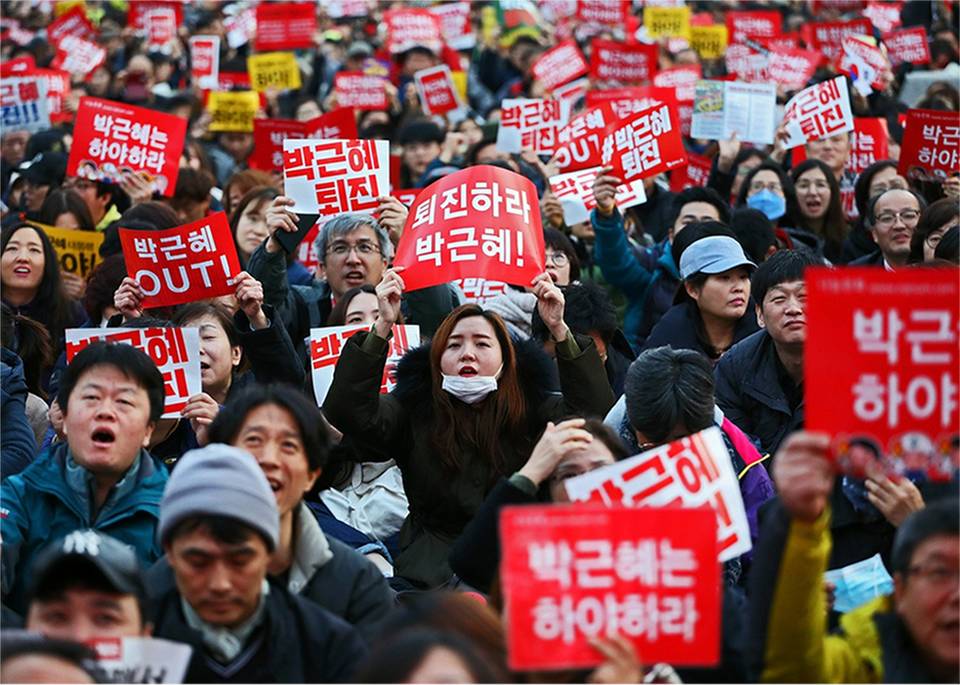Current News in South Korea: Political Turmoil and Martial Law
In recent days, South Korea has been engulfed in a significant political crisis following the unexpected declaration of martial law by President Yoon Suk Yeol. This move has sparked widespread backlash and raised serious concerns about the state of democracy in the country. Here’s a detailed overview of the unfolding events and their implications.
Martial Law Declaration
On December 3, 2024, President Yoon Suk Yeol announced martial law during a late-night address, citing the need to maintain order amid accusations that the opposition party was sympathizing with North Korea. This declaration led to troops surrounding the National Assembly, creating an atmosphere of fear and confusion among lawmakers and the public alike. The president's actions were perceived as a drastic measure to consolidate power and suppress dissent.
Immediate Reactions
The declaration of martial law was met with fierce opposition from various political factions. Lawmakers from both the ruling and opposition parties quickly mobilized against the president's decree. In a dramatic turn of events, the National Assembly voted overwhelmingly to reject the martial law, with 190 out of 300 members opposing it. This bipartisan vote underscored the gravity of the situation and the collective disapproval of Yoon's actions.
Lifting of Martial Law
Just hours after the declaration, the South Korean government announced the lifting of martial law. This decision came as a direct response to the overwhelming backlash from lawmakers and the public. The swift reversal of the martial law order highlighted the fragility of Yoon's position and the potential for political instability in the country.

Political Fallout
The lifting of martial law did not quell the political storm. Opposition leaders have called for President Yoon to resign or face impeachment. The Democratic Party, the main opposition group, has been vocal in its demands, arguing that Yoon's actions were unconstitutional and a threat to democracy. The political landscape in South Korea is now marked by uncertainty, with calls for accountability and a reassessment of the president's authority.
Economic Implications
The political turmoil has also had immediate repercussions on South Korea's economy. Following the announcement of martial law, the Kospi index, the country's benchmark stock market index, experienced a sharp decline of 2% before recovering slightly. Investors are now closely monitoring the situation, with officials pledging "unlimited" support to stabilize the markets amid the ongoing crisis.
Public Sentiment
Public sentiment is deeply divided. Many citizens are alarmed by the prospect of military rule and the implications it has for civil liberties. Protests have erupted in various parts of the country, with demonstrators expressing their discontent over the government's handling of the situation. The fear of a return to authoritarianism looms large, reminiscent of South Korea's past under military dictatorships.
International Reactions
The international community has expressed grave concern over the developments in South Korea. The United States, in particular, has been closely monitoring the situation, with officials emphasizing the importance of maintaining democratic norms. The declaration of martial law has raised alarms about the potential for increased tensions on the Korean Peninsula, especially in light of North Korea's ongoing provocations.

The recent events in South Korea serve as a stark reminder of the delicate balance between power and democracy. President Yoon Suk Yeol's declaration of martial law has not only sparked a political crisis but has also raised fundamental questions about the future of governance in the country. As the situation continues to evolve, the eyes of the world remain fixed on South Korea, watching how its leaders navigate this unprecedented challenge.
For more detailed updates, you can follow the latest news on platforms like The New York Times and AP News.





